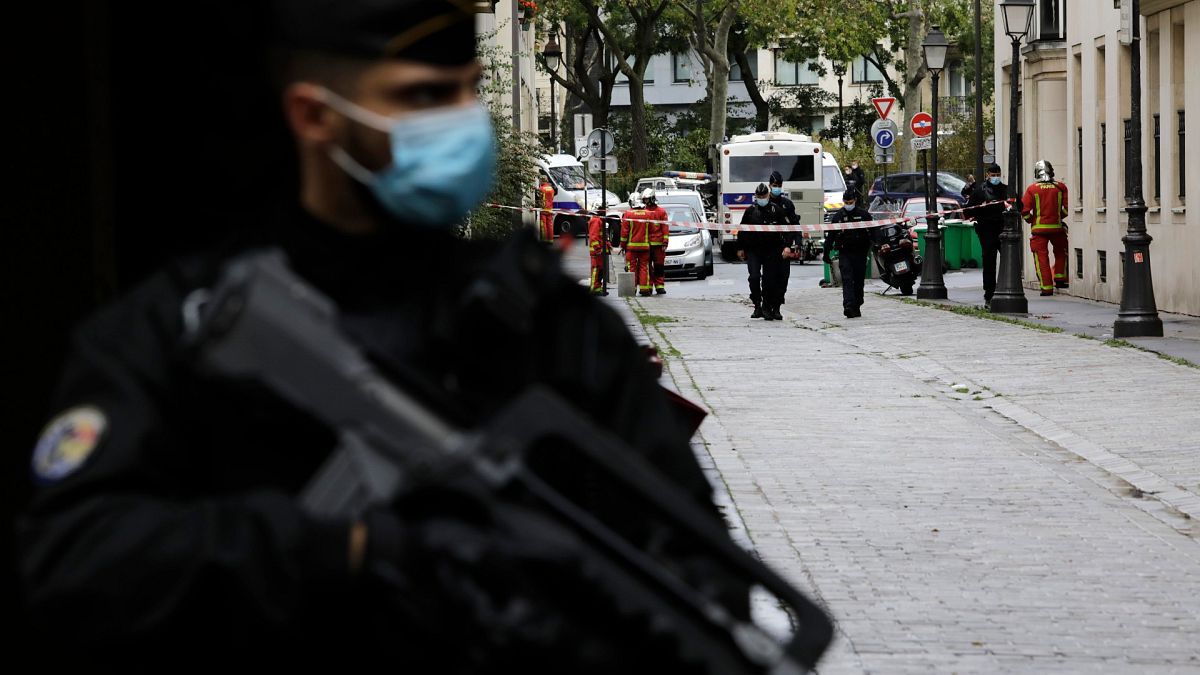A spate of recent terrorist attacks prompted the European Commission (EC) to publish the measures earlier than initially planned.
Brussels has unveiled a new package of measures aimed at tackling the threat of terrorism in Europe, including plans to give a stronger role to Europol.
A spate of recent terrorism attacks prompted the European Commission (EC) to publish the measures earlier than initially planned.
"The European way of life is not optional and we must do all in our power to prevent those that seek to undo it," said Margaritis Schinas, EC vice president.
"With today's Counter-Terrorism Agenda we are putting the focus on investing in the resilience of our societies with measures to better counter radicalisation and to protect our public spaces from attacks through targeted measures."
The package has however been criticised by Amnesty International for taking "a wrecking ball to rights".
Preventive measures
The measures primarily focus on prevention.
The EC thus urged the European Council — which consists of leaders from each European country — and the European Parliament to swiftly approve legislation it put forward in 2018 to force online service providers to detect and remove any terrorist content within an hour. It also calls for better programmes to prevent radicalisation, especially in prison.
To better anticipate threats, the EC also pledged to set up advisory missions to support member states in investigating vulnerabilities in their critical infrastructure. As many of the attacks that took place in the EU targeted densely crowded or highly symbolic spaces, including places of worship, the EC is to make funding available to reduce vulnerabilities of public spaces. This is largely to be through the deployment of new technologies.
It is said it would "explore options for a European legal framework to deploy security officers on flights".
Previous measures taken at the European level included stronger control of legally-held firearms, restricting access to dangerous explosives, and addressing access of terrorists to financing. The EC now wants to close an existing loophole which allows a resident of a member state who's been denied a firearm on security ground to make a similar request in another member state.
A stronger mandate for Europol
The bloc's law enforcement agency, Europol, would also see its mandate strengthened. The agency created a European Counter-Terrorism Centre in 2016 which gives operational support to national investigators during major counterterrorism investigations.
Now Brussels wants Europol to take a leading role in the bloc's defence against fighters returning from places like Syria and Iraq.
Information on foreign fighters provided by trusted non-EU countries is entered into the Schengen Information System, but Europol cannot input any information into it.
The Commission wants to change that and enable the agency to issue alerts on returning foreign terrorist fighters which would make the information accessibly directly and in real-time to frontline officers in member states.
Europol is also to be involved in the creation of a network of counter-terrorism financial investigators to help follow the money trail financing terrorist organisations and identify those involved.
The bloc is also working on developing a new information system to modernise border management.
Finally, the Commission estimates that the existing legal framework for law enforcement cooperation among EU countries is currently "too complex" and wants to create a police cooperation code to facilitate cross-border cooperation.
'Flawed' proposals
The strategy has however been strongly criticised by rights group Amnesty International.
"The premise of this proposal is flawed. It falsely posits that more surveillance and more restrictions on our freedom of expression are the price we have to pay for our safety, but our human rights become more important in times of crisis, not less," Eve Geddie, director of Amnesty International’s European Institutions Office, said in a statement.
"The agenda takes a wrecking ball to our rights, proudly targeting encryption and expanding surveillance, including via the use of drones in public spaces.
"This proposal makes no secret of its intent to increase investment in technologies to predict ‘abnormal or deviant behaviour and radicalisation risks’. It’s a mistake to think that these technologies are neutral. We know that they often target people of certain racial, religious and ethnic groups. Such profiling, like so many other counter-terrorism measures, has a discriminatory impact primarily on Muslims, and those perceived to be Muslim," she added.
